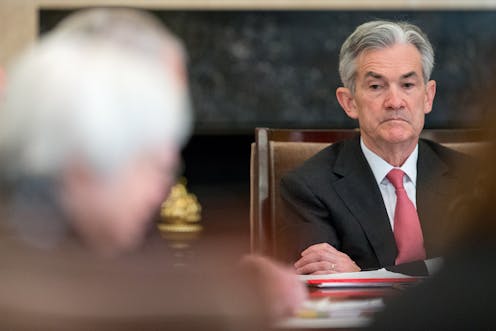Trump names 'safe' choice to lead the Federal Reserve: 5 questions answered
- Written by Greg Wright, Assistant Professor of Economics, University of California, Merced
 This man may soon be the world's 'second-most-powerful person.'AP Photo/Andrew Harnik
This man may soon be the world's 'second-most-powerful person.'AP Photo/Andrew HarnikEditor’s note: Markets breathed a sigh of relief after President Donald Trump named Jerome Powell his pick to be the next chair of the Federal Reserve. If confirmed, Powell – considered a “safe” choice – would take over from current...
Read more: Trump names 'safe' choice to lead the Federal Reserve: 5 questions answered

